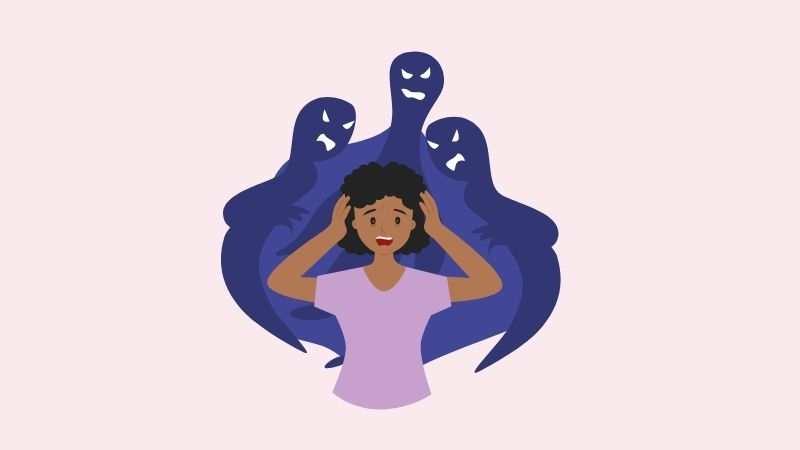
Can Sleep Deprivation Cause Hallucinations:- Sleep deprivation is a serious condition that goes beyond mere fatigue. While many of us recognize the immediate effects of insufficient sleep—grogginess, irritability, and lack of focus—fewer people are aware that prolonged sleep deprivation can lead to hallucinations. This blog explores the connection between sleep deprivation and hallucinations, its effects on mental health, and ways to manage and prevent this condition.
Contents
- 0.1 What is Sleep Deprivation?
- 0.2 What Are Hallucinations?
- 0.3 How Does Sleep Deprivation Lead to Hallucinations?
- 0.4 Stages of Sleep Deprivation and Hallucinations
- 0.5 Other Effects of Sleep Deprivation
- 0.6 How to Prevent Hallucinations Caused by Sleep Deprivation
- 0.7 Tips for Better Sleep
- 0.8 Extra Tips
- 0.9 FAQs
- 0.9.1 1. Can sleep deprivation cause permanent hallucinations?
- 0.9.2 2. How many hours of sleep deprivation can trigger hallucinations?
- 0.9.3 3. Is Zopiclone safe for treating sleep issues?
- 0.9.4 4. Can stress-induced insomnia cause hallucinations?
- 0.9.5 5. How long does it take to recover from sleep deprivation?
- 0.10 Conclusion
- 1 Author Details
What is Sleep Deprivation?
Sleep deprivation occurs when you fail to get adequate sleep over an extended period. Adults generally need 7–9 hours of sleep per night to function optimally. When this baseline is disrupted, it can severely affect the brain and body.
Common causes of sleep deprivation include:
- Stress
- Long work hours
- Anxiety disorders
- Chronic insomnia
- Medical conditions such as sleep apnea
What Are Hallucinations?
Hallucinations involve perceiving things that are not present in reality. They may affect any of the senses—sight, sound, touch, taste, or smell. For instance, a person might hear voices that aren’t there or see objects that don’t exist.
How Does Sleep Deprivation Lead to Hallucinations?
Prolonged lack of sleep disrupts normal brain function, particularly in areas controlling perception and cognition.
- Visual hallucinations: The most common type, where one sees shapes, lights, or figures.
- Auditory hallucinations: Hearing whispers, sounds, or voices that don’t exist.
- Tactile hallucinations: Feeling sensations like bugs crawling on the skin.
Stages of Sleep Deprivation and Hallucinations
- 24–48 Hours of Sleep Deprivation
- Difficulty focusing
- Slower reaction times
- Mood swings
- Minor auditory disturbances
- 72+ Hours of Sleep Deprivation
- Vivid hallucinations
- Paranoia
- Confusion and disorientation
- Chronic Sleep Deprivation
- Persistent cognitive decline
- Increased risk of psychotic disorders
Other Effects of Sleep Deprivation
Sleep deprivation can also lead to:
- Increased risk of accidents
- Impaired immune function
- Memory problems
- Mood disorders such as anxiety and depression
How to Prevent Hallucinations Caused by Sleep Deprivation
- Maintain a consistent sleep schedule: Go to bed and wake up at the same time daily.
- Create a sleep-conducive environment: A dark, quiet, and cool bedroom can improve sleep quality.
- Manage stress: Practice relaxation techniques like meditation or yoga.
- Seek medical help: Chronic sleep issues should be addressed by a healthcare provider.
Tips for Better Sleep
- Avoid caffeine and alcohol close to bedtime.
- Engage in regular physical activity.
- Reduce screen time at least an hour before sleeping.
- Use white noise machines or earplugs if needed.
Extra Tips
- Mindfulness practices: Breathing exercises can calm the mind and improve sleep.
- Proper nutrition: A balanced diet supports overall sleep health.
- Supplements: Consult a doctor about melatonin for temporary relief.
FAQs
1. Can sleep deprivation cause permanent hallucinations?
Sleep deprivation-induced hallucinations are typically temporary and resolve once proper sleep is restored.
2. How many hours of sleep deprivation can trigger hallucinations?
Hallucinations can occur after 72 hours of continuous sleep deprivation.
3. Is Zopiclone safe for treating sleep issues?
Yes, Zopiclone is considered safe when used as prescribed by a doctor for short-term treatment of insomnia.
4. Can stress-induced insomnia cause hallucinations?
Yes, prolonged stress leading to sleep deprivation can result in hallucinations.
5. How long does it take to recover from sleep deprivation?
Recovery varies depending on the severity of deprivation, but consistent quality sleep typically resolves symptoms in days to weeks.
Conclusion
Sleep deprivation is not just a minor inconvenience—it’s a serious condition that can lead to hallucinations and other psychological issues. If you or someone you know is experiencing such symptoms, seeking medical advice is crucial.
Doctors may recommend medications like Zopiclone, a non-benzodiazepine hypnotic that helps regulate sleep. Zopiclone works by targeting specific brain receptors to induce sleep, helping those with insomnia reset their sleep cycle. However, it is meant for short-term use and must be taken under professional supervision to avoid dependency or side effects.
Ensuring good sleep hygiene and seeking professional guidance can prevent sleep deprivation and its severe consequences, including hallucinations. Take your sleep seriously—it’s not just about rest but maintaining your physical and mental well-being.
Author Details




Medical content by qualified psychiatrists
Our editorial policy

Zopiclone precautions Read our potential abuse notice

Looking for a seller? Locate the best Zopiclone vendor






